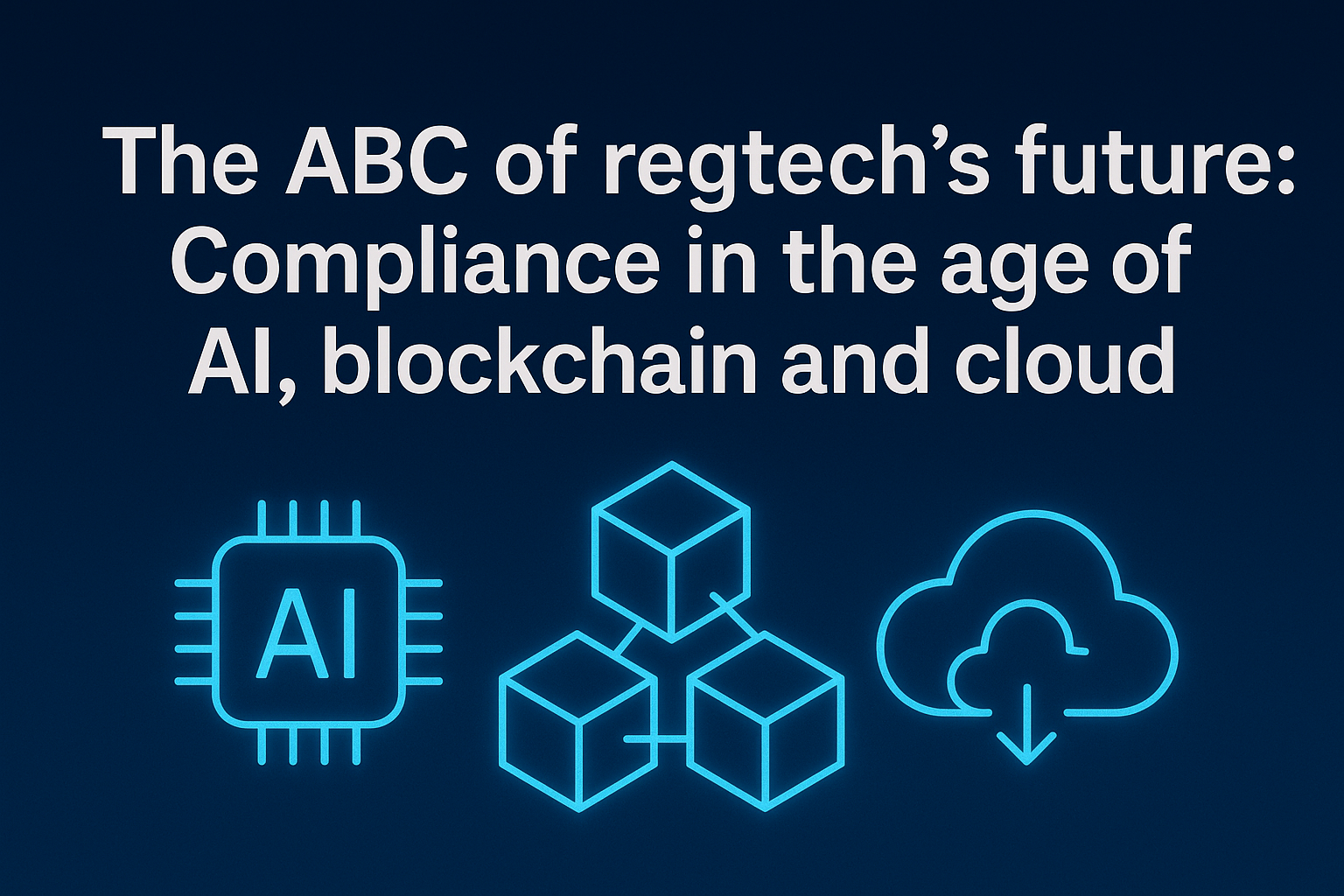The ABC of regtech’s future: Compliance in the age of AI, blockchain and cloud

“The first trend that comes to mind for me is that the future of compliance… lies in real-time monitoring systems that can detect regulatory violations as they are happening, rather than after the fact.”
So explained Vall Herald, CEO and co-founder of compliance and risk management firm Seifr, in a webinar at the start of this year, adding: “I think the ability to use AI and machine learning to, in real time, catch those potential compliance issues, is a trend that we will see come to the forefront.”
The rise of AI in the wider fintech landscape is readily apparent. While 2024 saw rapid evolution in fintech through AI and machine learning enabling personalised services, as Lloyds Banking Group puts it, the move from generative AI to agentic AI opens the door to much greater autonomy and efficiency.
For compliance, this has various ramifications. In July, Fenergo, alongside Chartis Research, published ‘Agentic AI in Compliance: From Concept to Operational Reality.’ The report found 93% of financial institutions overall plan to adopt agentic AI within two years. Fraud detection is the leading driver behind agentic AI adoption, according to the study, cited by 36% of respondents, followed by KYC maintenance (19%) and transaction monitoring (16%).
“This indicates a pragmatic approach,” the report notes. “Organisations are deploying agentic AI where the risk-reward trade-off is clear, and where the business case for autonomy is strongest.”
Yet AI is just one string to regtech’s bow. Grant Thornton’s comprehensive 2024 RegTech and Regulatory Change report gives a good idea as to where organisations – respondents ranging from industry professionals and stakeholders within regulation and compliance – currently sit.
More than three quarters (77%) of those polled said they anticipated more regulatory obligations than in previous years; but the most intriguing finding came from a question asked about technology investment. The most significant factor for buyers, alongside more competitive pricing, were regtech solutions that could be applied to multiple regulatory problems.
As a Strategy& article on the future of compliance explains, “the predictive analytics, machine learning, and blockchain technology underlying regtech can automate and streamline compliance, reducing cost as well as the risk of human error.”
Blockchain’s transparency and immutability makes it ideal for KYC, AML and client onboarding scenarios. Yet as a Planet Compliance article explains, monitoring, record keeping, and regulatory fund management are also viable use cases.
The latter is of particular interest. “The tokenisation of assets in the fund sector is another great example for the application of blockchain technology,” the article explains. “The use of smart contracts presents an invaluable advantage due to the effects of automation, but at the same time covers important bases for regulatory reporting, as well as the compliance of the regulatory obligations of a fund in real-time.”
Cloud solutions, for enhanced scalability and cost-effective deployment, complete the trio, with nearly 60% of regtech implementations now being cloud-based. Regtech-as-a-service (RaaS) is emerging as a potential solution for the future of agile compliance. Real-time horizon scanning, automated impact assessments, and seamless integration through APIs are just some of the benefits, according to Supradeep Appikonda, COO and co-founder of regtech firm 4Crisk.ai, explained in a recent Regtech Analyst article.
“By delivering scalable, cloud-native, and AI-driven compliance capabilities on a subscription basis, RaaS enables organisations to rapidly adapt to evolving regulations without heavy upfront investments. It offers flexibility to customise solutions modularly, seamless updates, and continuous access to the latest regulatory data and analytics,” said Appikonda. “This model accelerates time-to-value, reduces operational burden, and empowers firms to maintain compliance agility in an increasingly complex regulatory landscape.”
At Fintech Connect, on December 2-3 in London, the dedicated regtech stage will have various sessions which explore the impact of these technologies on compliance. Sessions will include executives from Commerzbank AG and Deutsche Bank discussing AI for regulation in financial services and simplifying regtech with cloud-native solutions respectively. Alongside this, the event is co-located with Tokenize:LDN, which features among others a dedicated paytech stage.
)
)